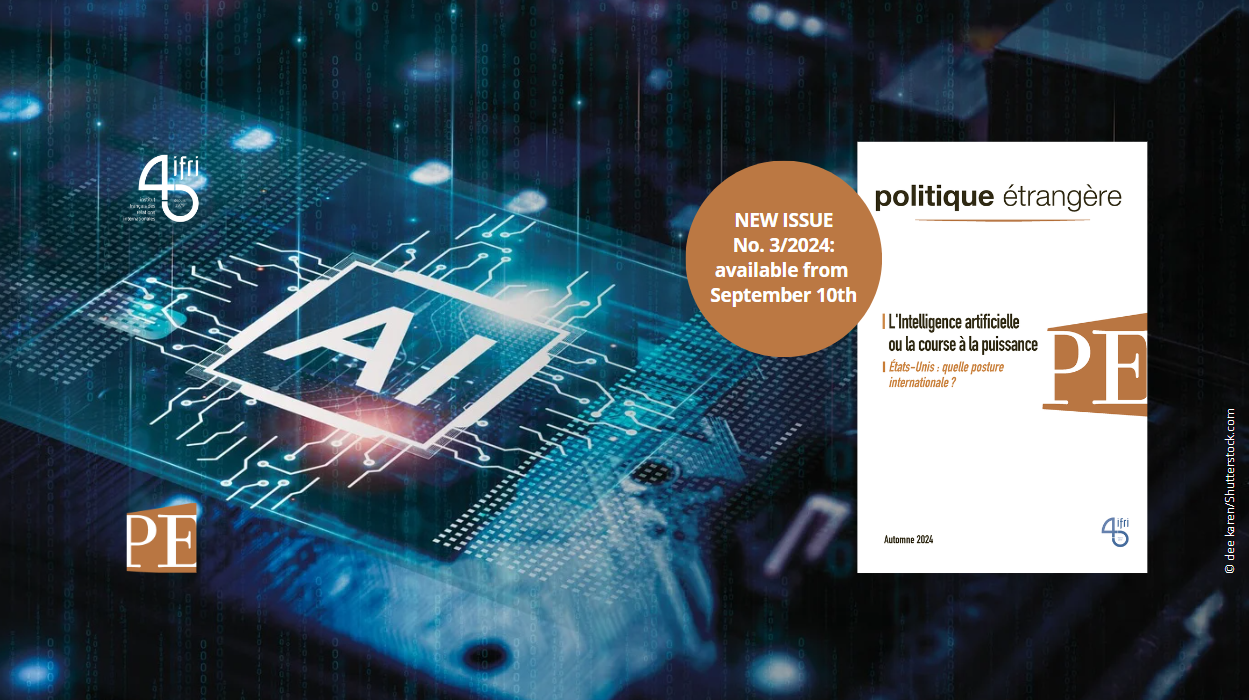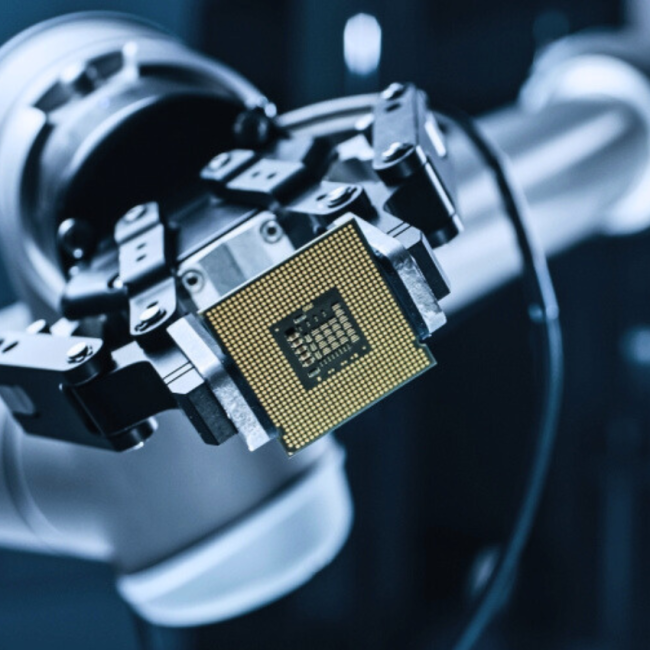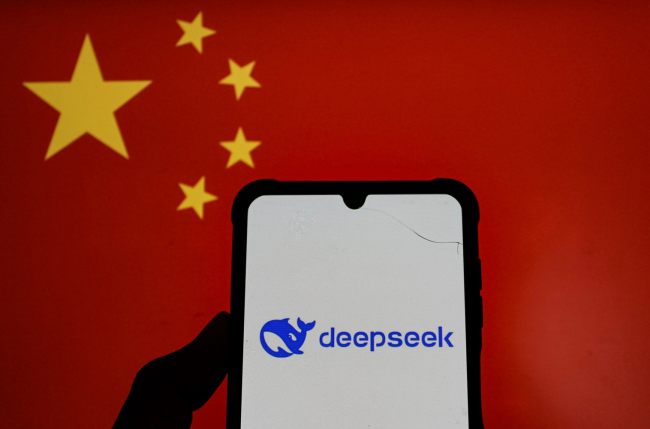Artificial Intelligence, or The Race for Power

Artificial intelligence (AI) is here to stay, and its use is spreading at a rate that is difficult to comprehend.

It is already present in a number of domains: in economics, where it is opening up new markets; in the military domain, where it is revolutionizing knowledge of battlefields and targeting and strike processes; in diplomacy, where it is creating a host of representations, discourses, and opportunities for manipulation; and in the context of societies more broadly, by bombarding us with information flows that challenge our sense of what is real and verifiable. . .
To what extent is AI sending shockwaves through our societies and how they function? Can its development be contained, both scientifically and politically speaking, by international cooperation, or will it escape our control? Who will be involved in this cooperative effort? Ultimately, this all boils down to one issue: humanity’s control over the course of its societies.
In the United States, with the war in Ukraine and the turmoil in the Middle East, the traditional balancing act between diplomatic withdrawal and power projection is donning new guises. What consequences will the presidential campaign have on US engagement in Europe and in the Middle East? Obsession with China, abandonment of Europe, ambivalence toward Israel: What scope for action will the next president have?
In addition to these ongoing crises on Europe’s doorstep, which are set to make questions of its strategy all the more urgent, current events are also raising more long-term issues that are just as crucial: the fate of the South Caucasus and the Black Sea, for instance. . .
This issue is available in French only: L'Intelligence artificielle ou la course à la puissance
ARTIFICIAL INTELLIGENCE, OR THE RACE FOR POWER
Artificial Intelligence: An International Competition, by Benjamin Pajot
The Geopolitical and Diplomatic Shockwave of Artificial Intelligence, by Sébastien Fagart
From Ukraine to Gaza: Military Uses of Artificial Intelligence, by Amélie Férey and Laure de Roucy-Rochegonde
Assessing the Safety and Robustness of Advanced AI, by Tom David and Nicolas Miailhe
Artificial Intelligence: The Bane and/or the Cure?, by Nicolas Arpagian
WHAT FUTURE INTERNATIONAL ROLE FOR THE UNITED STATES?
How Will the Democrats Approach Foreign Policy Post-Biden?, by Maud Quessard
China at the Heart of American Foreign Policy, by Philippe Le Corre
CURRENT AFFAIRS
The South Caucasus: A New Strategic Space?, by Gaïdz Minassian
The Black Sea: Rivalries, Risks, and European Security, by Florent Marciacq
Elections in India: Modi on the Backfoot, Tensions in Parliament, by Jean-Luc Racine
BAROMETERS
Hezbollah and the Doctrine of Wilāyat al-Faqīh, by Alain Monnier
City Diplomacy: The Modest Reality of an Ambitious Concept, by Yves Viltard
REFLECTIONS
Are Recent European Elections Heralding a Post-Populist Europe?, by Thibault Muzergues
Corporate Social Responsibility: Has Europe Already Lost Its Sovereignty?, by Emmanuel Bloch
BOOK REVIEWS
Under the direction of Marc Hecker
La Fascination russe. Politique française: trente ans de complaisance vis-à-vis de la Russie, Elsa Vidal
À la solde de Moscou, Vincent Jauvert
Notre guerre. Le crime et l'oubli: pour une pensée stratégique, Nicolas Tenzer
Poutine dans le texte, Élisabeth Sieca-Kozlowski
By Frédéric Charillon
232 pages. 23 euros.
September 10th, 2024.
Diffusion : Pollen/Dif'Pop.
Subscription: Armand Colin.
To buy an issue: CAIRN.
To buy the Epub (in French): Immatériel.fr.
Have a look on Politique étrangère's blog: Politique étrangère.
Related centers and programs
Discover our other research centers and programsFind out more
Discover all our analysesThe Sustainability of Space Operations: An Opportunity for European Leadership?
As space becomes a key arena for power projection strategies, while facing growth and diversification of orbital activities, the concept of “space sustainability” is emerging as a new framework of analysis for space governance.
The “Huawei Saga” in Europe Revisited: German Lessons for the Rollout of 6G
While the European Union attempted to coordinate a collective response through its 5G Toolbox in Europe’s 5G infrastructure, member states diverged significantly in balancing political, economic, and technological considerations. Germany, despite its economic ties to China and status as Europe’s largest telecom market, only reached a tentative agreement in July 2024—one that appears largely symbolic.
European Startups and Generative AI: Overcoming Big Tech Dominance
Europe is at a crossroads. Faced with the domination of American Big Tech across the entire generative Artificial Intelligence (AI) value chain, from foundation models to cloud infrastructure, distribution channels, and open source, it risks long-term technological and economic decline. Yet generative AI also represents a major opportunity for economic transformation, with a potential value estimated at 1.5 times France’s gross domestic product (GDP). To turn it into a driver of renewal, Europe must move beyond the illusion of total technological independence and instead build an ecosystem that leverages Big Tech resources while strengthening its own innovation capabilities.
A "DeepSeek Moment"?
DeepSeek, hailed as a champion of Chinese AI, represents less a revolution than a significant optimization of existing technologies. Doubts remain regarding the figures put forward by the start-up, inviting a more measured response to the media hype surrounding China’s technological catch-up. Nonetheless, DeepSeek signals the need to question an economic model based solely on the race for computational power. By betting on open innovation, Europe can carve out its own path in a competition that is far from being a zero-sum game.










